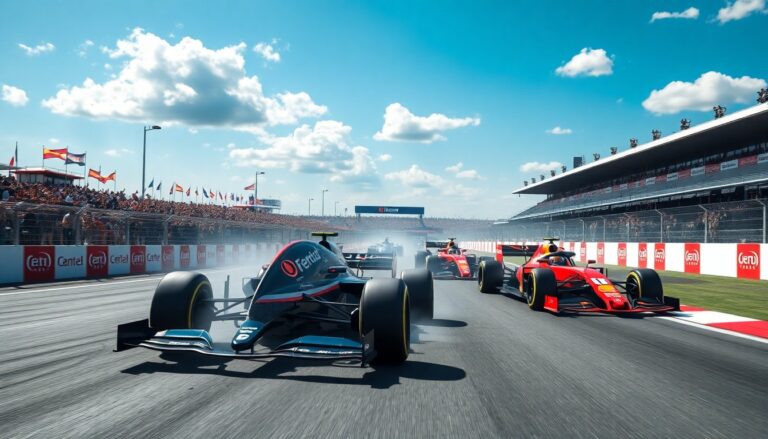Argomenti trattati
Formula 1 (F1) racing transcends mere sport; it is a global phenomenon captivating millions of fans worldwide. The speed of the cars, the precision of the drivers, and the intricate strategies employed by teams contribute to the excitement surrounding each race. From the roar of the engines to the vibrant atmosphere of the circuits, F1 offers a unique blend of technology, competition, and glamour.
Each year, the F1 calendar features a series of races known as Grands Prix, held in various countries. These races test skill, endurance, and teamwork as drivers navigate challenging tracks while competing against the best in the world. This article explores the fascinating aspects of Formula 1 that make it one of the most thrilling sports globally.
The technology behind the speed
At the heart of Formula 1 lies the incredible technology that powers the cars. Each vehicle represents a masterpiece of engineering, designed to maximize speed and performance. The use of aerodynamics is crucial, as the car’s shape significantly affects its ability to cut through the air and maintain stability at high speeds. Teams invest millions in wind tunnel testing to refine their car designs, ensuring optimal performance on the track.
Hybrid power units
In recent years, the introduction of hybrid power units has revolutionized F1. These units combine traditional combustion engines with electric motors, enhancing efficiency and power delivery. The energy recovery system (ERS) captures energy generated during braking and uses it to provide additional power, giving drivers a significant performance boost when needed. This shift increases speed and aligns the sport with modern sustainability goals.
The art of strategy
While raw speed is essential, the strategic element of Formula 1 racing cannot be overlooked. Teams must carefully plan their race strategies, considering various factors such as tire wear, weather conditions, and the performance of rival teams. Effective communication between drivers and their pit crews is crucial for making split-second decisions during the race.
Tire management and pit stops
Tire strategy plays a pivotal role in F1 racing. Drivers must manage their tire wear effectively to maintain optimal performance throughout the race. Teams often opt for different tire compounds, each designed for specific conditions. For instance, the soft tire offers maximum grip but wears out quickly, while the hard tire lasts longer but provides less grip. The choice of tire can significantly influence the outcome of the race.
Pit stops are another strategic element that can make or break a race. During a pit stop, teams must change tires and refuel as quickly as possible. A well-executed pit stop can gain valuable seconds, while a poorly timed or executed stop can cost a driver precious positions on the track.
The culture and glamour of F1
Beyond the technical and strategic aspects, Formula 1 is also steeped in culture and glamour. The sport attracts celebrities, sponsors, and extensive media attention, creating an aura of exclusivity. The glamorous lifestyle associated with F1 is epitomized by events such as the Monaco Grand Prix, where the rich and famous gather to witness the action while enjoying lavish parties and events.
Moreover, F1 significantly impacts the local economies of host countries. Races boost tourism, hospitality, and various sectors, making them essential events for cities that host them. The socio-economic implications of F1 extend beyond just the races, fostering international relationships and cultural exchanges.
Overall, Formula 1 racing captivates audiences with its combination of speed, strategy, technology, and culture. Each race offers a thrilling spectacle that keeps fans on the edge of their seats. As the sport continues to evolve with advancements in technology and changes in regulations, F1 will undoubtedly continue to enthrall audiences worldwide.

